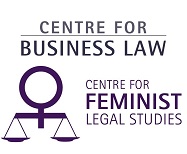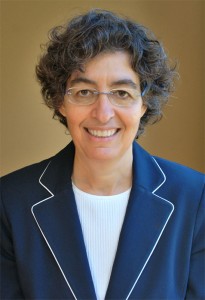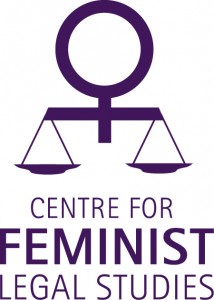 Judith Paula Mosoff
Judith Paula Mosoff
June 20, 1947 – December 20, 2015
The Centre for Feminist Legal Studies lost an important member of our community to cancer, on December 20, 2015. Professor Judith Mosoff was a faculty member at UBC Law for 24 years. She played a key role in the clinical program before moving into the academic stream, teaching courses such as administrative law, criminal law and procedure, regulatory state, perspectives on law, disability law, children and the law, and, most recently, legal ethics and professionalism. Judy was a past member of the CFLS Steering Committee and she also organized several of the annual Marlee Kline Lectures in Social Justice.
Judy’s scholarly work on disability and disability rights was known across the country. She challenged the legal system to grant human rights to persons with disabilities but also challenged the human rights paradigm to address disability rights in a fulsome manner. For instance, her article “Excessive Demand’ on the Canadian Conscience: Disability, Family and Immigration” (1999) 26:2 Man. L.J. 149-179 was quickly followed by “Is the Human Rights Paradigm ‘Able’ to Include Disability: Who’s In? Who Wins? What? Why?” (2000) 26:1 Queen’s L.J. 225-276. Other articles on human rights and disability, as well as corporal punishment, were published with her colleague and friend Professor Isabel Grant.
The feminist community will likely remember Judy best for her work on law and mothers with mental health issues. Her well-known 1995 article “Motherhood, Madness and Law” (1995) 45:2 U.T.L.J. 107-142 was groundbreaking for its exploration of how mental health law and child protection law intersect in a way that dramatically affects women with psychiatric disabilities. Together with her chapter “’A Jury Dressed in Medical White and Judicial Black’: Mothers with Mental Health Histories in Child Welfare and Custody” in Challenging the Public/Private Divide: Feminism, Law, and Public Policy (1997), this work is a rare Canadian example of in depth scholarly consideration of how the ideology of motherhood intersects with attitudes about mental illness in judicial decision-making about parental fitness and can result in the legal system severing the relationship between mother and child. Judy had returned to this subject and was working on a second paper when she became ill.
Perhaps the project that meant most to Judy was her role as a founding member of Steps Forward, an inclusive post secondary initiative: http://www.steps-forward.org. Her passion for social justice and for issues such as how to include those with developmental disabilities in educational systems will be much missed. Steps Forward is currently taking donations towards a Judith Mosoff Bursary or scholarship to support future students.

 Consider attending this upcoming panel, co-sponsored by UBC Law’s Centre for Business Law and Centre for Feminist Legal Studies. The promotion of equality for women in the legal profession is part of the ethical and professional responsibilities of all lawyers. Much attention to this issue has been focused on the important question of the retention of women in private practice, which is usually linked to challenges in balancing the demands of practice and family responsibilities. While these are important issues, they are not the only issues facing women lawyers throughout their career paths.
Consider attending this upcoming panel, co-sponsored by UBC Law’s Centre for Business Law and Centre for Feminist Legal Studies. The promotion of equality for women in the legal profession is part of the ethical and professional responsibilities of all lawyers. Much attention to this issue has been focused on the important question of the retention of women in private practice, which is usually linked to challenges in balancing the demands of practice and family responsibilities. While these are important issues, they are not the only issues facing women lawyers throughout their career paths.
